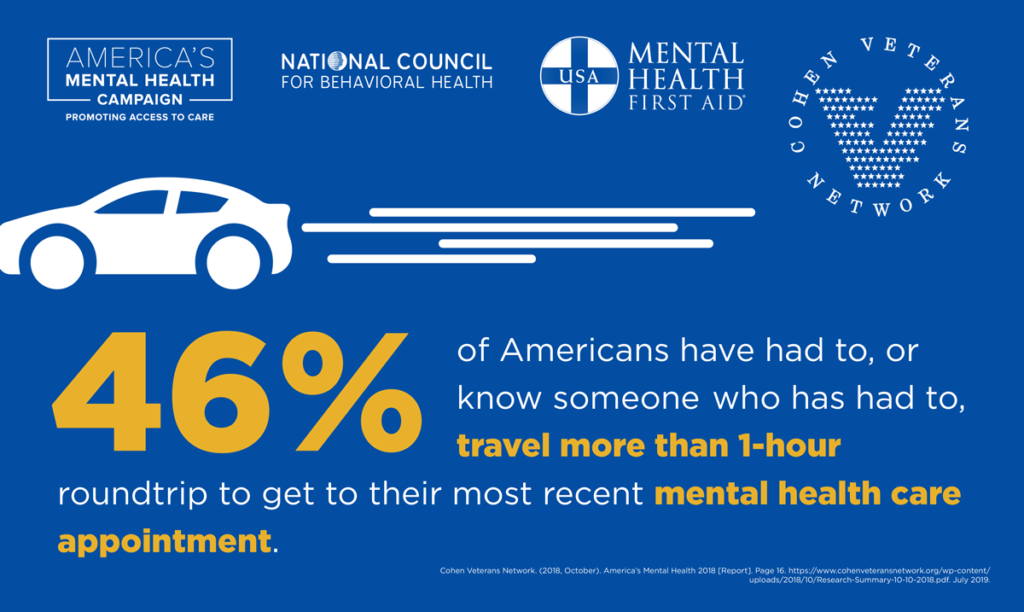One in five adults in the United States face a mental illness in any one year – that’s almost 44 million people. For these people, the holidays can be an especially difficult time. For some, large gatherings and traveling to see family or friends can cause stress. For others, the holidays are a time of loneliness and social isolation.
For many people who are struggling, it can also be difficult to seek and get the help they need. According to Cohen Veterans Network’s 2018 America’s Mental Health study, nearly half (46 percent) of American adults have had to, or know someone who has had to, travel more than 1-hour roundtrip to get their most recent mental health care appointment
That’s why it’s important that as a family member or friend, you can recognize when your loved one with a mental illness is struggling, and how you can offer support.
Use these tips from the MHFA curriculum to support your loved ones this holiday season.
